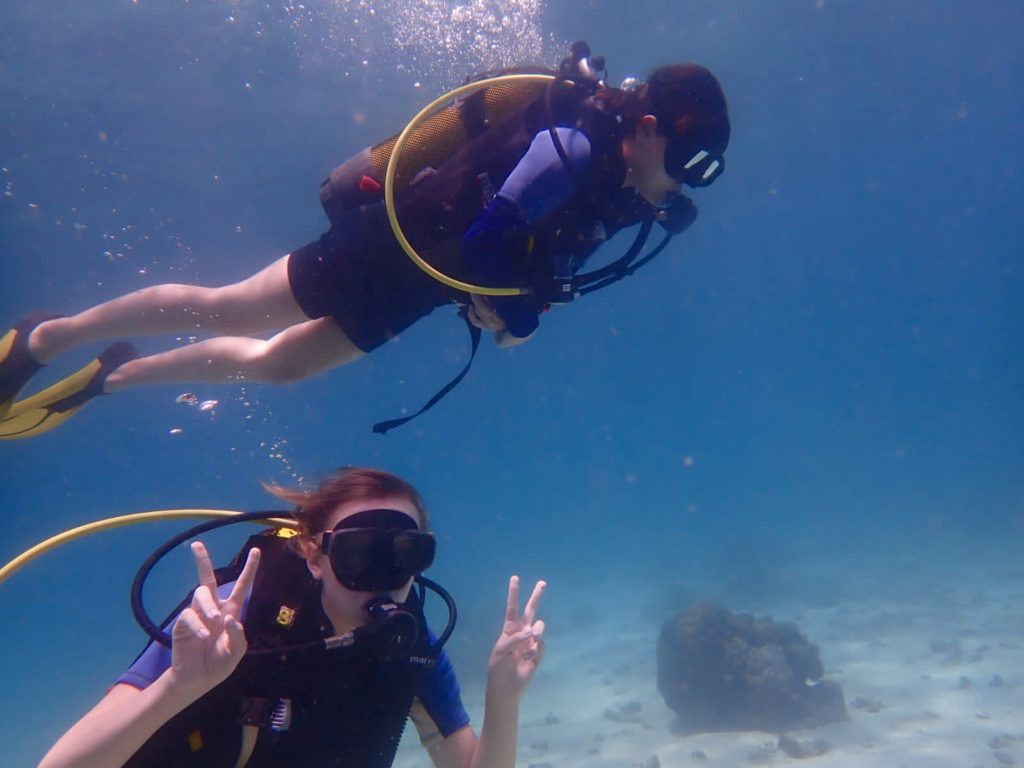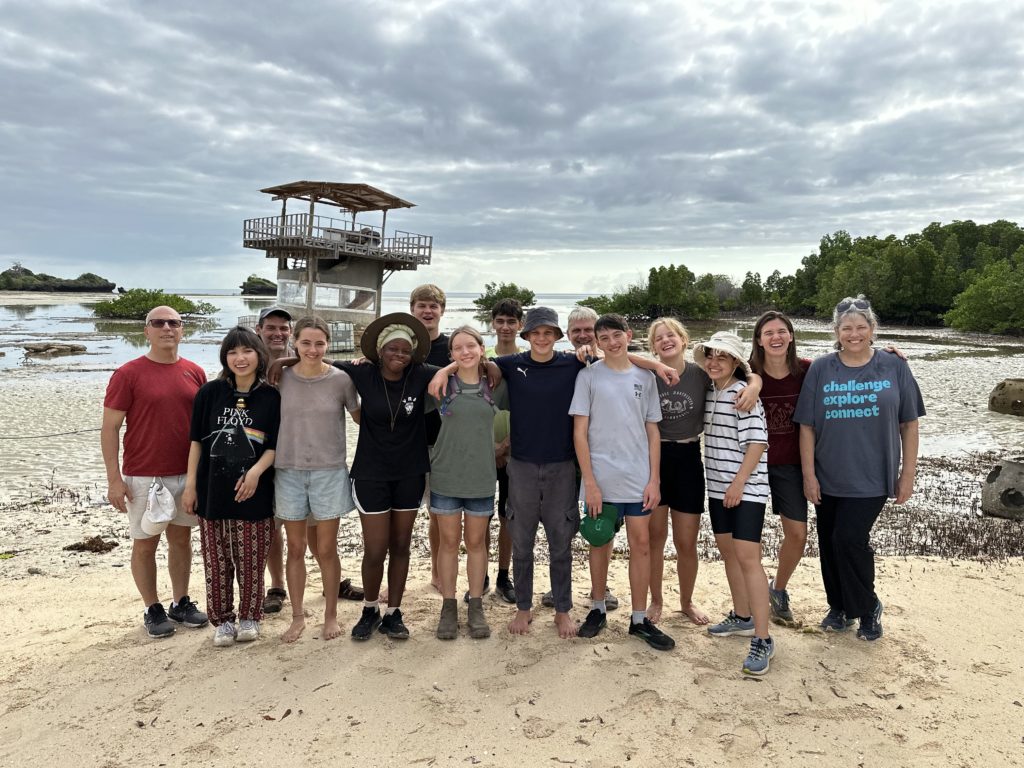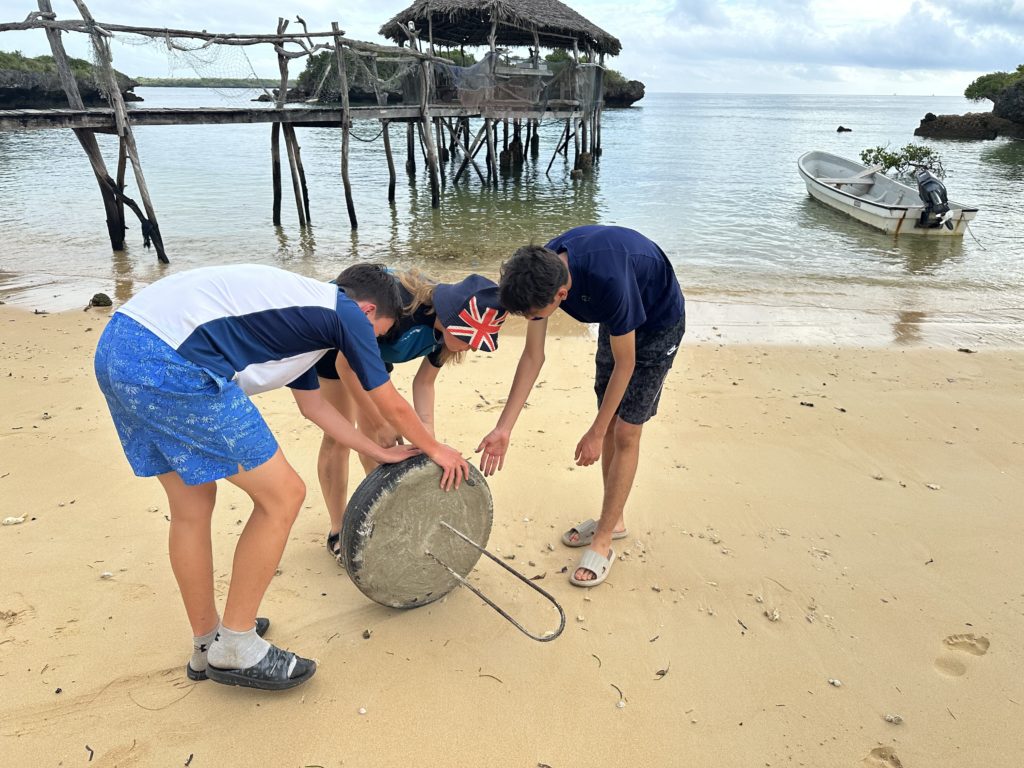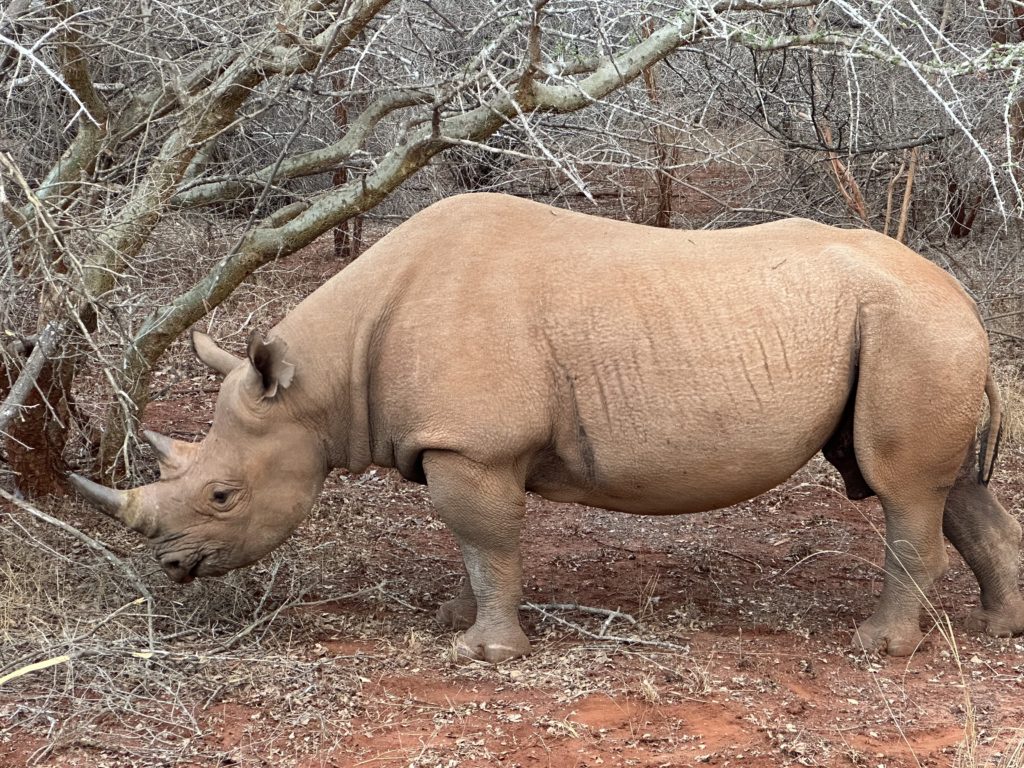TIS Adventure Program: Deep Dive into Learning & Service in Tanzania
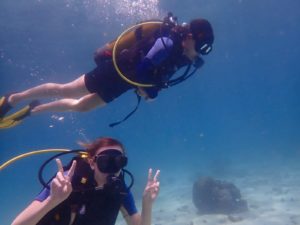
Tashkent International School
Published:
“Tanzania will forever hold a spot in our heart. Where humidity and heat embraced us. It is a place where music and endless conversation made 8 hours of car rides feel like 1 hour. A place where kingdoms of corals thrive; here we got lost in the unearthly and unimaginable beauty of sea life; dolphins taunted us to swim with them. . . A whole new definition of nature. Where community, culture, and love unite to provide us with paradise.” (Hollansa, G9 student in the TIS Tanzania Adventure Program 2023)
During the recent fall break, six Tashkent International School secondary students undertook a service learning project to help restore coral reefs and fish habitats north of Tanga, Tanzania, at Fish Eagle Point, collaborating with students from UWC East Africa, Moshi. The project established by current TIS teacher and Experiential Learning Coordinator, Robin Marsh, previously employed at UWCEA Moshi, was the first of its kind for TIS students. This was the first part of a newly added Adventure Program at TIS which has 5 different foci: Mountaineering, Kayaking, Snow, Silk Road & Diving.
Students who participated from doubly landlocked Uzbekistan had to first gain their open water PADI scuba certification. Once done, the intent of the trip was twofold: plant coral upon concrete “coral balls” moved by the divers to locations up to 18 metres under the surface and create steel structures designed by students in the design classes at TIS, which would be covered in corals and placed on the seafloor. Both would provide artificial habitat for new hatchlings in an area widely overfished and decimated in places nearer the coast by dynamite used for fishing.
Many coral balls, hollow concrete structures which can weigh up to 800 pounds, have already been placed on the seafloor. Once placed, coral, from nurseries established for this purpose, is adhered and can grow quite quickly. Those placed by the UWC students from years past are already home to small fish populations. Student divers maintain the balls by cleaning off algae and planting new coral, until the natural ecosystem takes over completely. The project is working. But unfortunately for our TIS students, the raft needed to help move the concrete balls from the beach had rusted and would have been unsafe to use. Plans are in the work to have a stainless steel structure ready by next fall when TIS students will return.
TIS students focused instead on building their fellow student designed structures. These metal frames will be covered in resin, sand and coral and put in place by an outdoor education cohort from UWCEA Moshi in the next few weeks. However, TIS students’ underwater capacities did not go to waste. A group of researchers from the Universities of Glasgow and St. Andrews in Scotland studying the whale and dolphin movement through the area used TIS divers to place a sound recorder 18 metres under the surface for their large mammal studies. Anchored by a 250 pound device created for this reason, divers were able to search out and locate a prime position for placement, guide the anchoring device to the sea floor, attach the two sound recorders and place indicators for the researchers to be able to find and retrieve the information in the weeks to come.
The trip was a huge success and will hopefully be repeated many times in the future. It demonstrated to all who participated the satisfaction of small service actions in our world and the power of collaborative teamwork.
